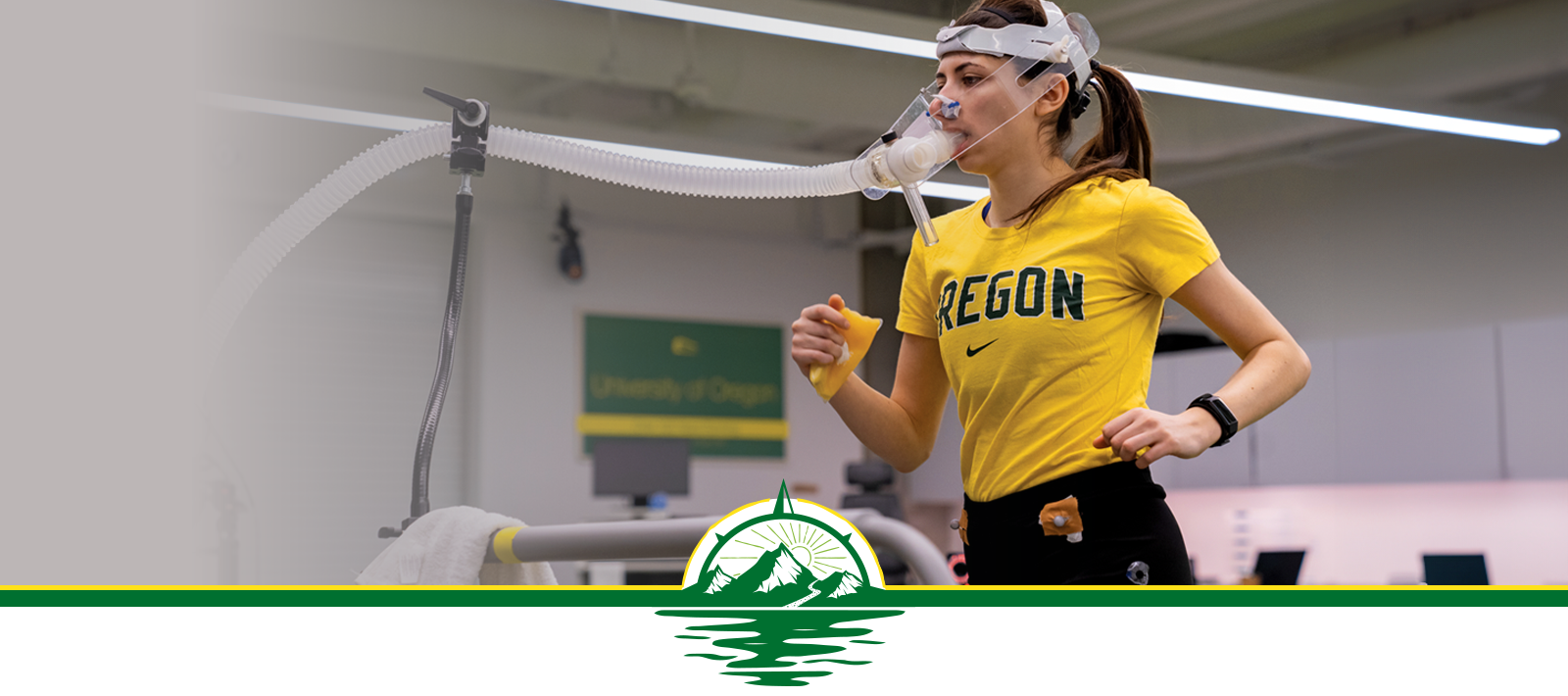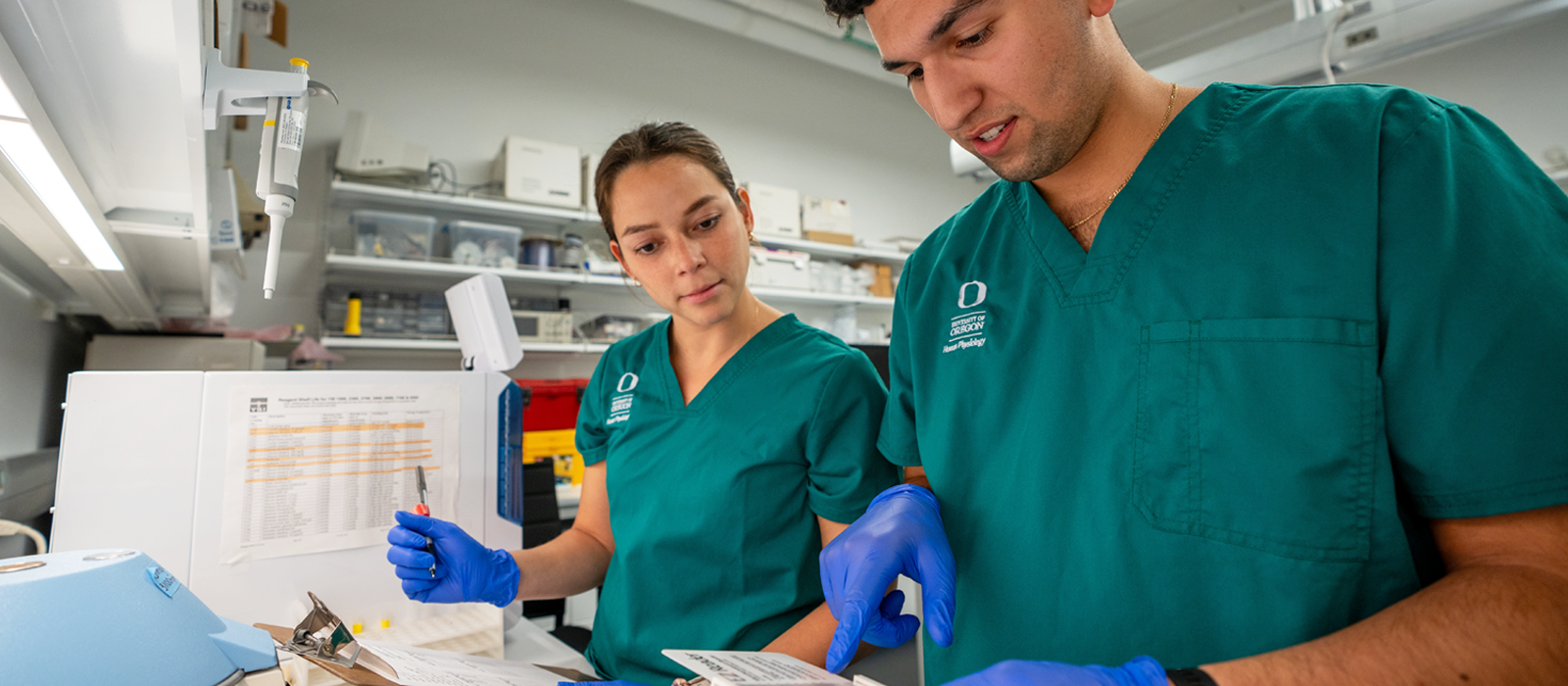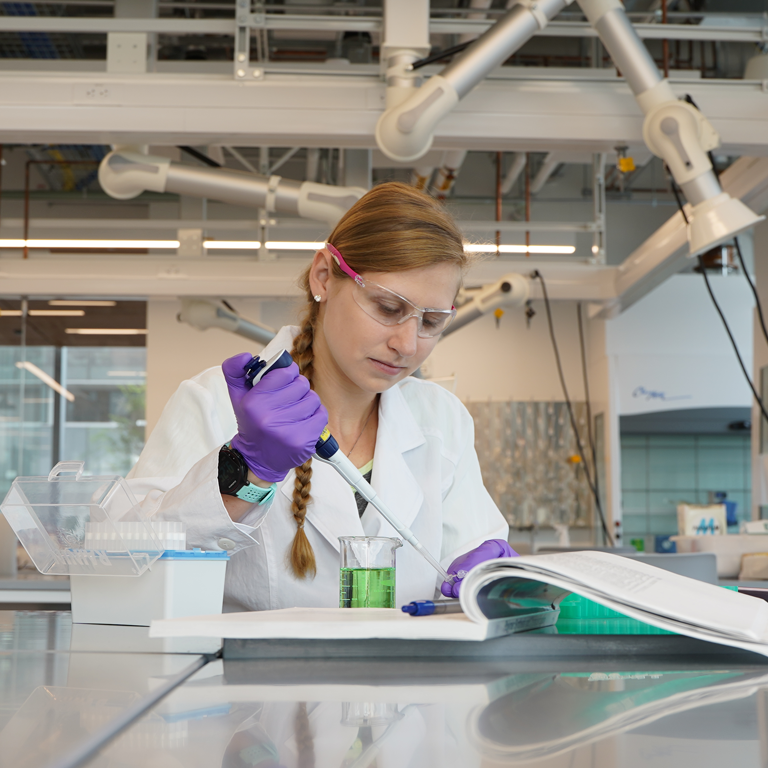
Engineering for peak human performance
Helping you live longer and better
Millions of Americans do not get enough physical activity to stay healthy. What’s more, staying physically active can prevent one in 10 premature deaths, according to the Centers for Disease Control. But rather than focusing on disease, at the University of Oregon, we’re focusing on the underlying mechanisms of peak physical performance—the pursuit of which is deeply embedded in our academic and athletic traditions. The UO is home to a rich history of transdisciplinary sport and science scholarship and innovation, a high-performing athletics program, and world-class facilities.
Nike co-founder and coach Bill Bowerman was famous for having said, “If you have a body, you are an athlete.” UO research applies to anyone with a body, not just Olympic athletes. Whether it’s healing from an injury or preventing one in the first place, the University of Oregon brings exceptional strengths in fields central and complementary to the science of human performance, including physiology, biosensors and regenerative medicine, sports product design, biomedical engineering, and biology.
The UO is a national leader in high-impact workforce development that recruits and trains diverse students through innovative, applied master’s degree, and PhD programs.
Research Facilities, Centers, and Institutes
As a partner in the Wu Tsai Human Performance Alliance, centered in the Phil and Penny Knight Campus for Accelerating Scientific Impact, the UO is home to a "scientific moonshot" in regenerative rehabilitation and an innovation hub based at the Bowerman Sports Science Center at Hayward Field.

The University of Oregon is a founding partner of the Wu Tsai Human Performance Alliance—a scientific collaboration studying peak performance (rather than disease) with the goal of enabling all people to achieve optimal health and well-being. Researchers are synergizing regenerative therapies and rehabilitation protocols to restore function to damaged tissues and prevent injury. The innovation hub focuses on the development of predictive biomarkers and AI-based algorithms to improve the performance and injury recovery of track and field athletes at the developmental, elite, and masters levels.
Research strengths:
- Muscle and bone regeneration
- Wearable and implantable sensors
The Bowerman Sports Science Center supports the application of science to athletes, including biomarkers testing, cardiovascular and integrative health studies, and lab environments that pit athletes against environmental stressors like hot and cold, wind, solar radiation, and altitude to understand their physiological effects.
Research strengths:
- Optical-based sensors for clothing
- Athletic equipment designed for female movement mechanics
- Exercise and environmental physiology
- Neuromechanics

Training the Next Generation
We are setting the pace with our training programs, which directly engage corporate partners to prepare a diverse Oregon workforce.
Our biomedical engineering doctoral program results in a dual-shield degree from the UO and Oregon State University. Research areas include regenerative medicine, synthetic biology, biosensors and devices. Career training embedded in the program takes science and careers to the next level.
Students who complete their PhD through the human physiology graduate program go on to great success in the world of practical healthcare or research. Half of the program’s alumni go on to postdoctoral fellowships, and many others go on to university faculty positions that balance a combination of both research and teaching.
The Sports Product Design program is revolutionizing adaptive design for every size and shape of body.
The Knight Campus Graduate Internship Program is an accelerated master’s program featuring a nine-month paid internship with five tracks including bioinformatics and genomics or molecular sensors and biotechnology.
Collaborations
The University of Oregon is a member of the Global Sports University Network—a collective of universities from around the world that harnesses knowledge on sport to solve timely, complex problems.
UO-based spinout company NatureQuant provides a tech solution to spending more time in nature by enabling users to locate areas near where they live with high “nature scores,” as well as a method by which health practitioners can “prescribe” nature. Numerous scientific studies demonstrate that increasing the time one spends in nature boosts mental health and well-being.
Another UO-based spinout, ReDefine Health Promotion LLC equips healthcare providers to effectively promote health and well-being across settings and among people of all body sizes using data-informed, non-stigmatizing approaches.


